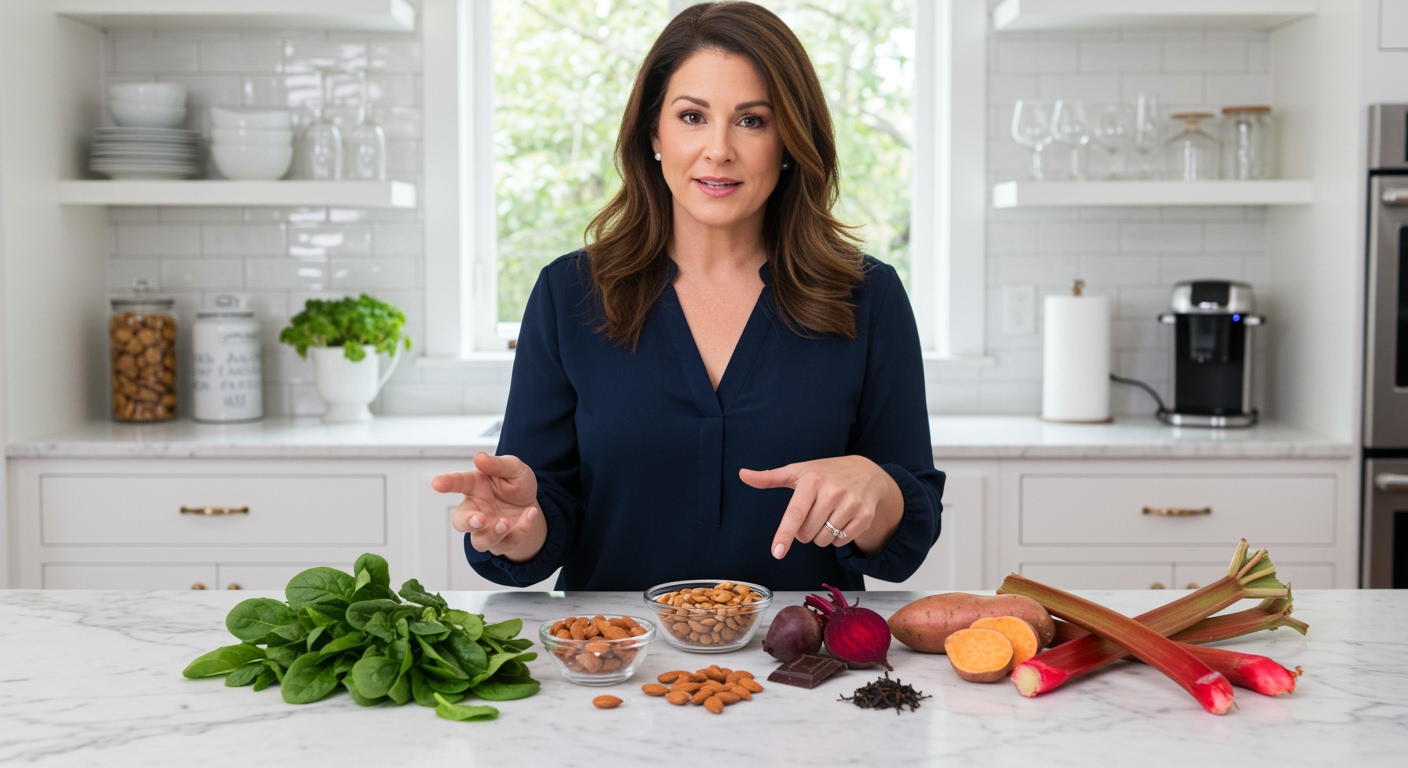✪ Key Takeaway: Women with PCOS should monitor oxalate intake only if they have kidney stones or specific kidney issues, not as routine practice.
Introduction
You scroll through social media and see another post claiming oxalate foods are destroying your PCOS recovery.
This confusion happens because some wellness influencers mix up different health conditions and create unnecessary food fears.
Hi, I’m Abdur, your nutrition coach and today I’m going to explain the real relationship between oxalate foods and PCOS so you can make informed decisions.
What Are Oxalates and Why Do They Matter?
Oxalates are natural compounds found in many plant foods that your body also produces on its own.
These compounds become problematic only when they bind with calcium in your kidneys and form kidney stones.
Your body normally processes oxalates through your digestive system and eliminates them through urine without issues.
The confusion starts when people assume all inflammatory conditions require oxalate restriction.
Most healthy people can consume moderate amounts of oxalate foods without any problems.
✪ Fact: Your body produces about 40-50% of the oxalates found in your urine naturally through normal metabolism.
Does PCOS Create Oxalate Problems?
PCOS does not directly cause your body to process oxalates differently than women without the condition.
The main PCOS concerns involve insulin resistance, hormone imbalances, and inflammation rather than kidney stone formation.
Some women with PCOS may have higher kidney stone risk due to metabolic syndrome and insulin resistance.
However, this increased risk comes from dehydration, high sodium intake, and poor overall diet quality.
The solution involves improving your entire eating pattern rather than eliminating specific nutrient-dense foods.
✪ Note: Focus on managing insulin resistance and inflammation rather than restricting healthy oxalate foods unnecessarily.
Which Foods Contain High Oxalates?
Many nutritious foods contain oxalates, including spinach, almonds, beets, sweet potatoes, and dark chocolate.
Spinach contains the highest levels with about 750 milligrams of oxalates per cooked cup.
Other high-oxalate foods include rhubarb, black tea, nuts, seeds, and some berries.
These foods also provide essential vitamins, minerals, antioxidants, and fiber that support overall health.
Eliminating these foods without medical necessity removes important nutrients from your diet unnecessarily.
The key involves eating a varied diet rather than consuming large amounts of any single high-oxalate food daily.
✪ Pro Tip: Pair oxalate foods with calcium-rich options like yogurt or cheese to reduce oxalate absorption.
When Should You Actually Limit Oxalates?
You should consider oxalate restriction only if you have a history of calcium oxalate kidney stones.
Your doctor will recommend this approach based on urine tests and stone analysis results.
People with certain digestive conditions like inflammatory bowel disease may also need oxalate monitoring.
Most women with PCOS do not fall into these specific categories requiring oxalate restriction.
Instead, focus on proven PCOS management strategies like balanced meals, regular exercise, and stress management.
Always consult your healthcare provider before making significant dietary changes based on internet advice.
✪ Note: Medical supervision is essential when following any restrictive diet for kidney stone prevention.
The Bottom Line
Most women with PCOS do not need to limit oxalate foods unless they have specific kidney stone issues diagnosed by a doctor.
Health should be based on evidence, not fear, and restricting nutritious foods without medical necessity often does more harm than good.
I would love to hear about your experiences with PCOS nutrition advice and any questions you might have about making sense of conflicting information in the comments below.
References
At NutritionCrown, we use quality and credible sources to ensure our content is accurate and trustworthy. Below are the sources referenced in writing this article:
- PMC: PCOS and Kidney Health Research
- Healthline: Low Oxalate Diet Guide
- National Kidney Foundation: Kidney Stone Diet Plan and Prevention
- Healthline: PCOS Diet Guidelines





